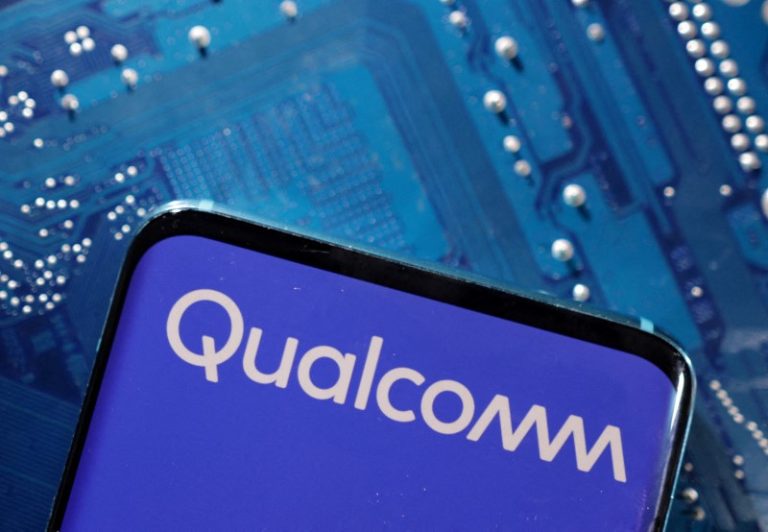By Tom Hals
(Reuters) -A license dispute between Arm Holdings (NASDAQ:ARM) and Qualcomm (NASDAQ:QCOM) went before a jury on Thursday after attorneys from both sides completed closing arguments.
The jury in a U.S. federal court in Delaware is considering whether Qualcomm or Nuvia, a startup Qualcomm purchased for $1.4 billion in 2021, breached a license agreement with U.K.-based Arm, which supplies intellectual property to both firms.
The case could upend Qualcomm’s push into the PC market with a chip meant to rival Apple (NASDAQ:AAPL) and Intel (NASDAQ:INTC) on speed.
During closing arguments, Qualcomm’s legal team urged the eight-member jury to find the chipmaker had not breached a contract with Arm, warning that the British chip designer was using its lawsuit to try to gain leverage over makers of smart phone chips.
Qualcomm lawyer Karen Dunn told jurors that Arm is hoping to force Qualcomm to destroy its recently launched high-speed chips for AI laptops and then threaten similar license partners who build mobile phone chips off its technology.
“You can bet the world is watching here,” Dunn said to the jurors in her closing argument.
Arm’s lawyer Daralyn Durie warned the jury such allegations were distractions from the issue they must decide: whether Qualcomm and Nuvia, the start-up it acquired in 2021, breached license agreements.
“It’s an effort to get you to think about things that have nothing to do with the breach of the contract,” Durie said.
In 2022, Arm said Nuvia and Qualcomm had breached Arm’s contract for Nuvia technology and in response the British company terminated the agreement, which obligated Nuvia to destroy the tech built based on that technology. Qualcomm argues that the Nuvia chip designs in question were created independently from Arm.
Arm’s attorney Durie said if Qualcomm didn’t want to be forced to destroy its microprocessors it should have complied with the terms of its license.
“The decision to go ahead and use all this stuff without a license, that was their choice,” Durie said. “Now they are saying that was a bad decision and they are unhappy. But that was their decision not ours.”
The jury met for three and a half hours without reaching a verdict and will resume deliberations on Friday morning.
In the trial that started on Monday, Arm sought to portray Qualcomm’s moves as a first-of-its-kind flouting of standard contractual terms the British company had used successfully for decades and that would have upended its business model.
At stake for Qualcomm was annual savings of up to $1.4 billion by using the Nuvia designs while claiming the work was done at Qualcomm, which would carry a less expensive licensing deal, Arm attorneys said.
Qualcomm claimed Arm misled it into disbanding its own design team, increasing its dependence on Arm technology and then trying to raise royalty rates as much as 400%. It also pointed to internal Arm documents that it said showed Arm was plotting to get into the chip making business while undermining Qualcomm.
Arm’s Chief Executive Rene Haas dismissed those allegations.

